Is Plastic-Free the Perfect Option? (Hint: Not Always)
It’s been a long time since I first took the Plastic Free July challenge (all the way back in 2012) and made the decision to make this plastic-free living lark a way of life. What an adventure it has been!
It completely made me re-evaluate the way I think about waste, the types of products I buy, where I source my food, the kinds of products I put on my skin, even the work that I do.
Of course, some of the decisions I made at the start of the journey aren’t the choices I’d make today.
However, I continue to share them, because they were decisions that I made at the time, and I think it is important to explain why I made these choices (along with what I might do differently now, or what the next step might be).
There are people starting out at exactly the point that I started out, and sharing the choices I made can help shine the light on possible alternatives and solutions.
I never share any solution as the perfect solution. I’ve talked about this before: how there’s often compromise, and we need to personally decide on our priorities and make the choices that work best for us in our own circumstances.
However, if the focus is plastic-free (or zero waste) living – which, hopefully it is! -Â then there are better choices. Not perfect, but better.
I wanted to talk about a few of the choices I’ve made, why they are not perfect, but why I still think they are “better”.
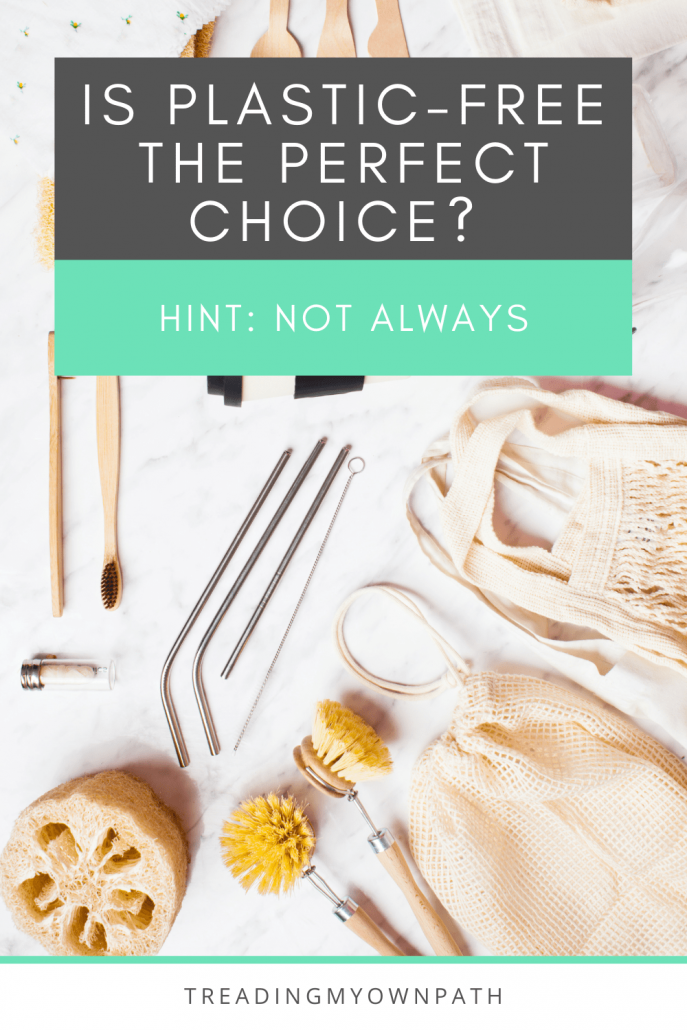
Lining a Bin with Newspaper
When I went plastic-free back in 2012, one of my first dilemmas was how to line my bin without a plastic bag. I still took the “free” plastic bags from the supermarket and used them to line my bin.
A friend suggested newspaper, and I made the switch.
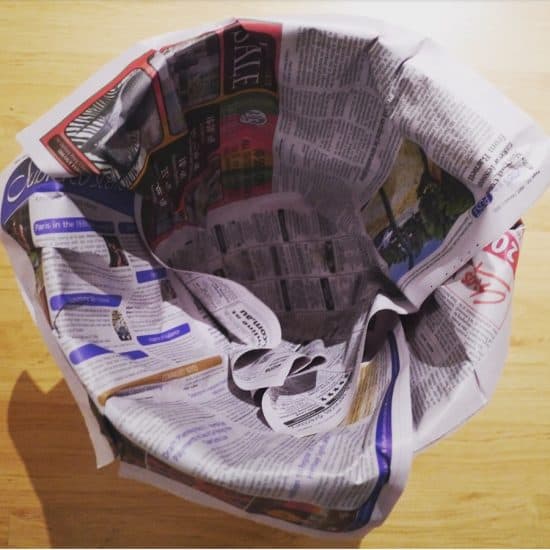
I wrote a post back in 2013 (it’s one of my most widely shared posts ever) entitled “How to Line Your Rubbish Bin without a Plastic Bag”.
I wanted to share with others how I’d switched from lining my bin with a plastic bag to lining my bin with newspaper. It is what worked for me.
Every year this post resurfaces at Plastic Free July time, and I get the same comments and questions, without fail.
“Who even gets a newspaper these days?”
Actually, quite a lot of people in Perth, which is where I live. There is a free community newspaper delivered to most suburbs. At the time, I had a free community newspaper delivered, and I read it, so it made sense to use it for something else.
A lot of cafes in Perth (there are a bazillion of them, at least) get newspapers for customers to read, as do libraries and workplaces.
There’s no need to buy a newspaper to line the bin. This is about using what I already had. It might not work for everyone, but it does work for some of us.
“Using newspaper is hardly eco-friendly, all those trees.”
I didn’t call that post “the absolutely most eco-friendly way ever to line your bin” for a reason. It is simply a plastic-free solution. (Although, when was the last time you saw a paper bag stuck in a tree, or choking sea life?)
Yes, making paper uses a lot of resources (trees, energy and also water). In fact, paper bags have three times the carbon footprint of a plastic bag.
Whether newspaper is the same I’m not sure, as it tends to have a lot of recycled content (whereas most paper bags do not), but of course, all materials have a footprint. Which leads me to…
“Why not compost and then there is no bin liner required at all?”
Exactly. Great idea and what I do now.
“Now” being the key word.
If you’d said to me at the start of Plastic Free July, “hey, newspaper bin liners have a footprint, you need to set up a compost bin and a worm farm and a bokashi system so you’re not throwing away any of your organic matter” then I would most likely have had a meltdown.
I was busy trying to find solutions to every other thing!
Yes, I did set up a worm farm, and a bokashi system, and I did do away with my newspaper bin liners. But it took 2 years to get to that point!
Buying Plastic Reusables
Something that also comes up often when talking about different types of reusables, is the fact that some are made of plastic.
“How can you say you are plastic-free when you use reusables made of / containing plastic?”
When I first went plastic-free back in 2012, I purchased a plastic KeepCup. Back then, KeepCup were the only brand of reusable barista-standard coffee cup, and they only had plastic cups (they didn’t launch their glass range until 2014).
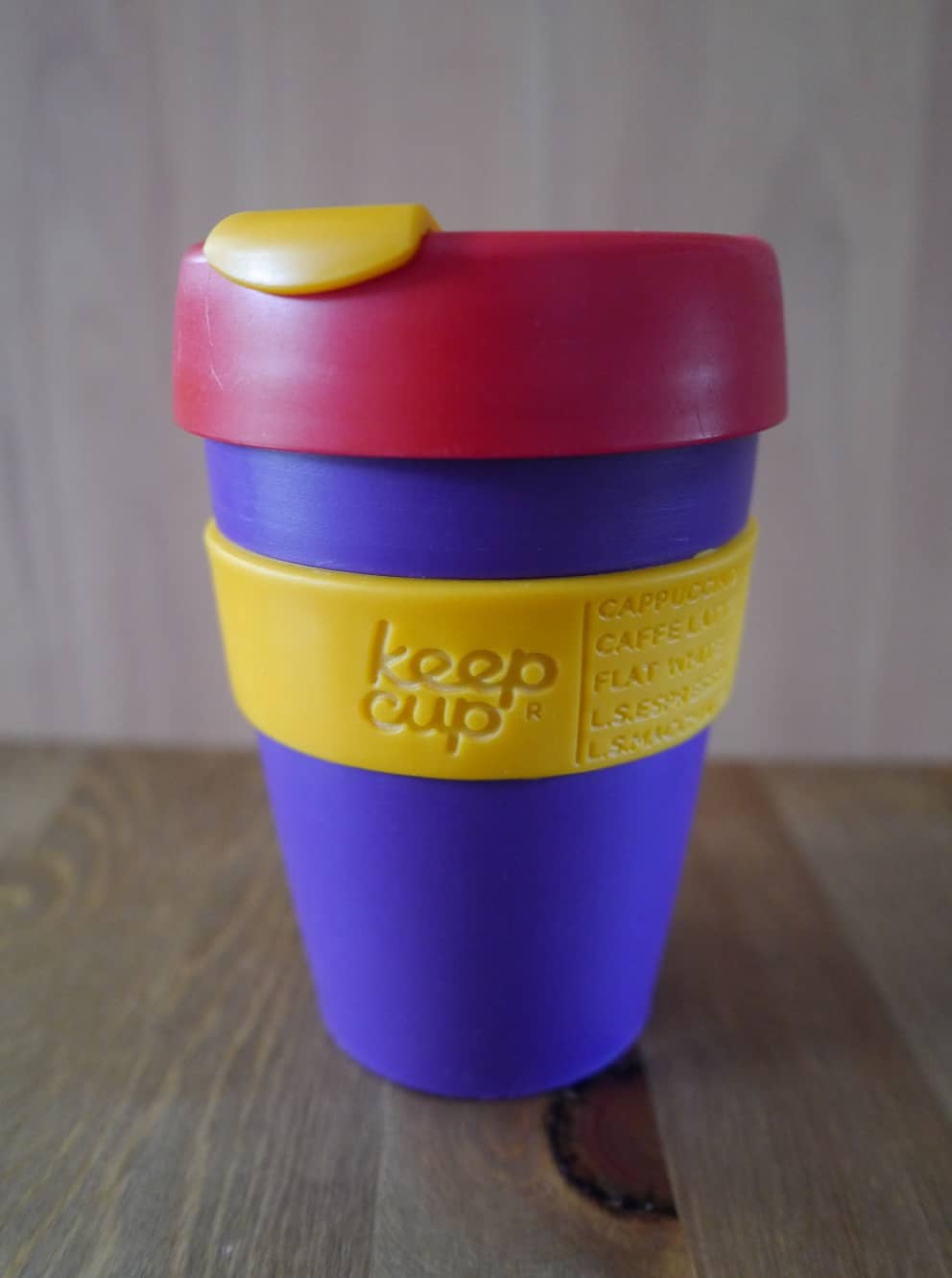
My goal was to reduce single-use plastic. That is what Plastic Free July is all about. The reusable plastic KeepCup served its purpose – I haven’t drank out of a takeaway coffee cup since.
It’s estimated that a reusable coffee cup needs to be used about 15 times to offset the energy / footprint, versus a single-use disposable cup. Definitely achieved.
In time, I decided that plastic reusables weren’t something I personally wanted to choose in future. I also didn’t love drinking hot drinks out of plastic, so I purchased a glass one.
However reusable plastics still work for some. Whether it’s the portability, resistance to breakage, the need to be collapsible or something else, there are reasons that people still choose plastic reusables, and these reasons are perfectly valid.
There’s another really good reason to purchase reusables made out of plastic in my view, and that is when they are made out of 100% recycled plastic.
As my plastic-free living journey deepened, I decided I wanted to steer clear of ALL plastic. Over time, my view of this has mellowed because I realise that we still have an issue to deal with – legacy plastic.
If we banned plastic water bottles tomorrow, there are still millions already in existence. What do we do with them? Recycling them into something worthwhile and built to last seems like a good idea to me.
Recycled PET shopping bags and produce bags have a much lower carbon footprint than new cotton or cloth bags (cotton requires huge amounts of water to grow and is often exposed to huge amounts of pesticides also).
I think these kinds of reusables definitely have a place in a “plastic-free” world.
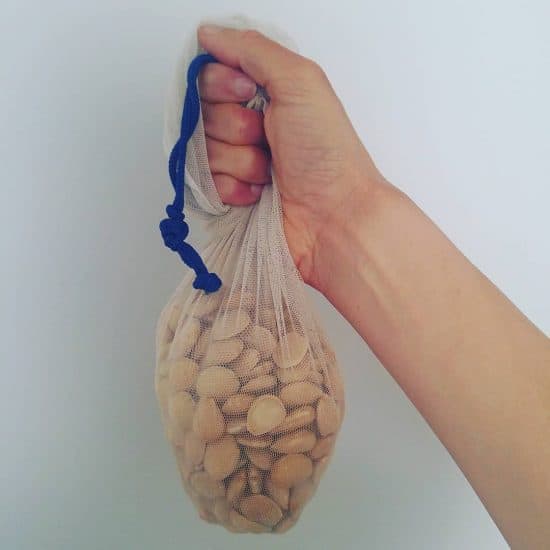
Personally, I like a mix. I like to keep my plastic-use to a minimum, but I do find these bags immensely useful and practical.
Shopping at Bulk Bin Stores that Use Plastic Bins (Which is Pretty Much All of Them)
I talk about bulk food shopping on my website and also on Instagram, and more than once I’ve had comments about the materials the bulk containers are made of.
“Isn’t it ironic / hypocritical saying plastic-free when the containers are made of plastic?”
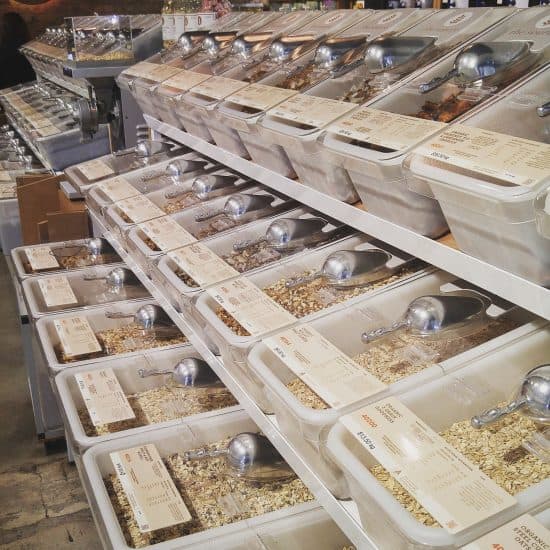
Personally, I think not. My local store in Perth is part of The Source Bulk Foods, who have more than 40 bulk stores in Australia. There are lots of other bulk stores in Perth and across the country. I’ve never seen one with zero plastic storage, and when you think about the cost and practicalities of only using metal, glass or wood, it’s easy to see why it’s not common.
These bulk stores (with their plastic bins) make it possible for thousands of customers to shop packaging-free. They generate packaging themselves, sure, but far less than if we were all buying our individually packaged everything from the supermarket.
Plus, they are working with suppliers to develop ways to reduce packaging further upstream.
Zero waste isn’t perfect, and plastic-free living doesn’t have all the solutions, but we get closer all the time.
If you’re starting out with plastic-free, and are finding the apparent conflict a little tricky to navigate, know that we have all been there. It’s easy to get lost in a minefield of ethical dilemmas when it comes to plastic-free living.
There’s always someone keen to point out why something isn’t perfect. If we are just at the beginning of our journey, there is nothing more deflating than making a choice that we feel is better, only to be told that actually, it isn’t.
The only thing we can do is to make conscious decisions. To make the best choice you can with what you know today. Maybe in the future you’d choose differently, but we can’t make decisions about things we don’t know yet.
Plastic-free living is not about being perfect, it’s about making better choices.
Now I’d love to hear from you! How do you feel about plastics in your plastic-free life? Do you own and use any plastic reusables, or is it something you steer clear of? Is it something that you’ve changed your mind about along the way? Where are you willing to compromise, and where are you not? I’d love to know what you think so please leave a comment below!
[leadpages_leadbox leadbox_id=140b48fc6639c5] [/leadpages_leadbox]
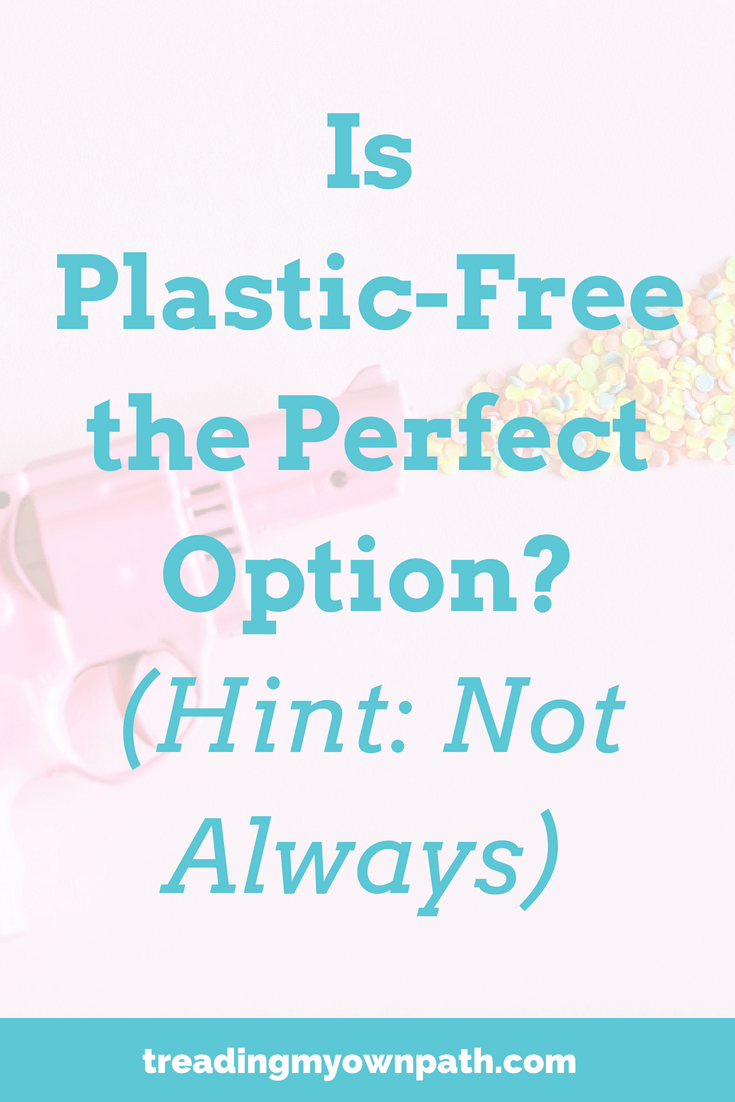
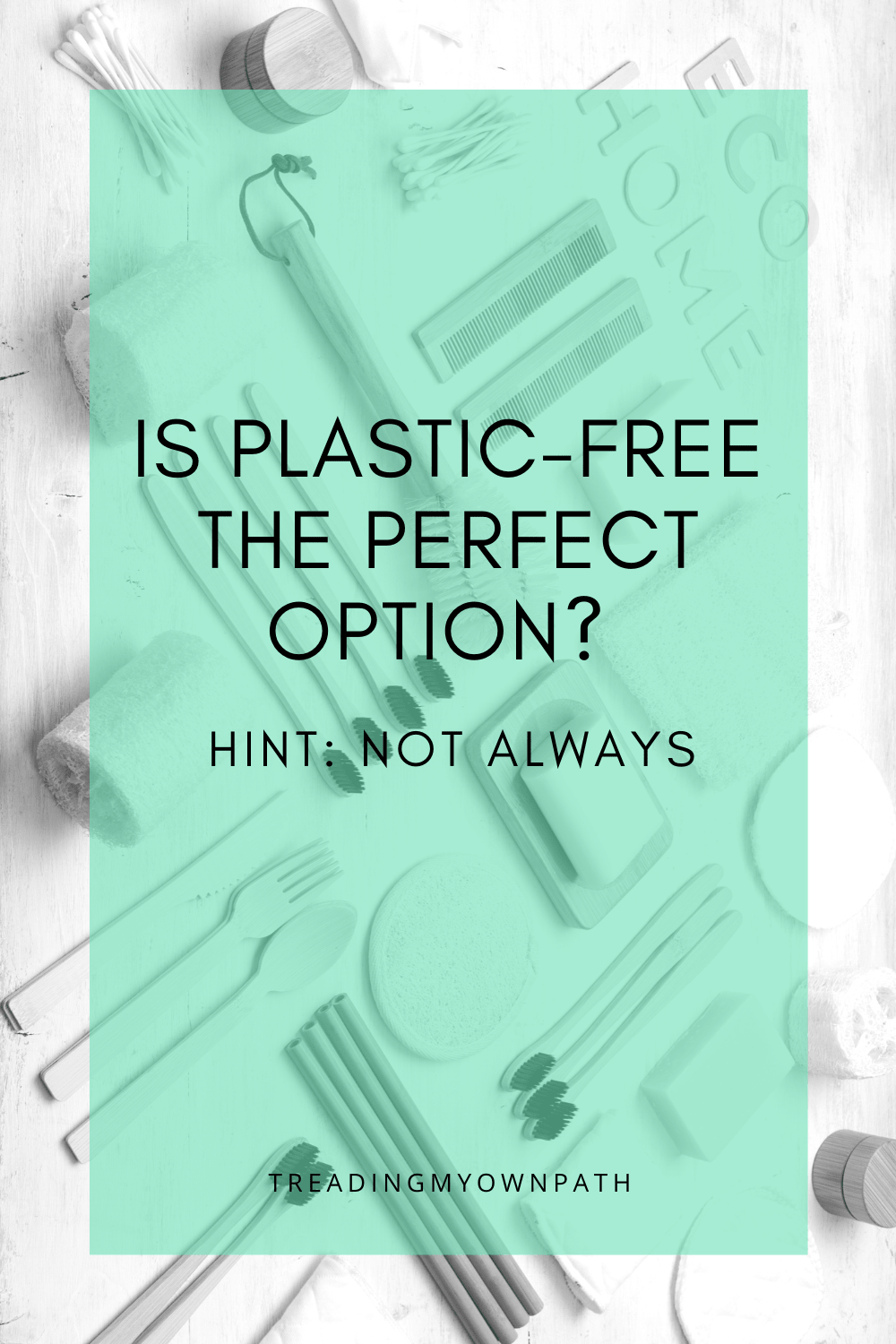
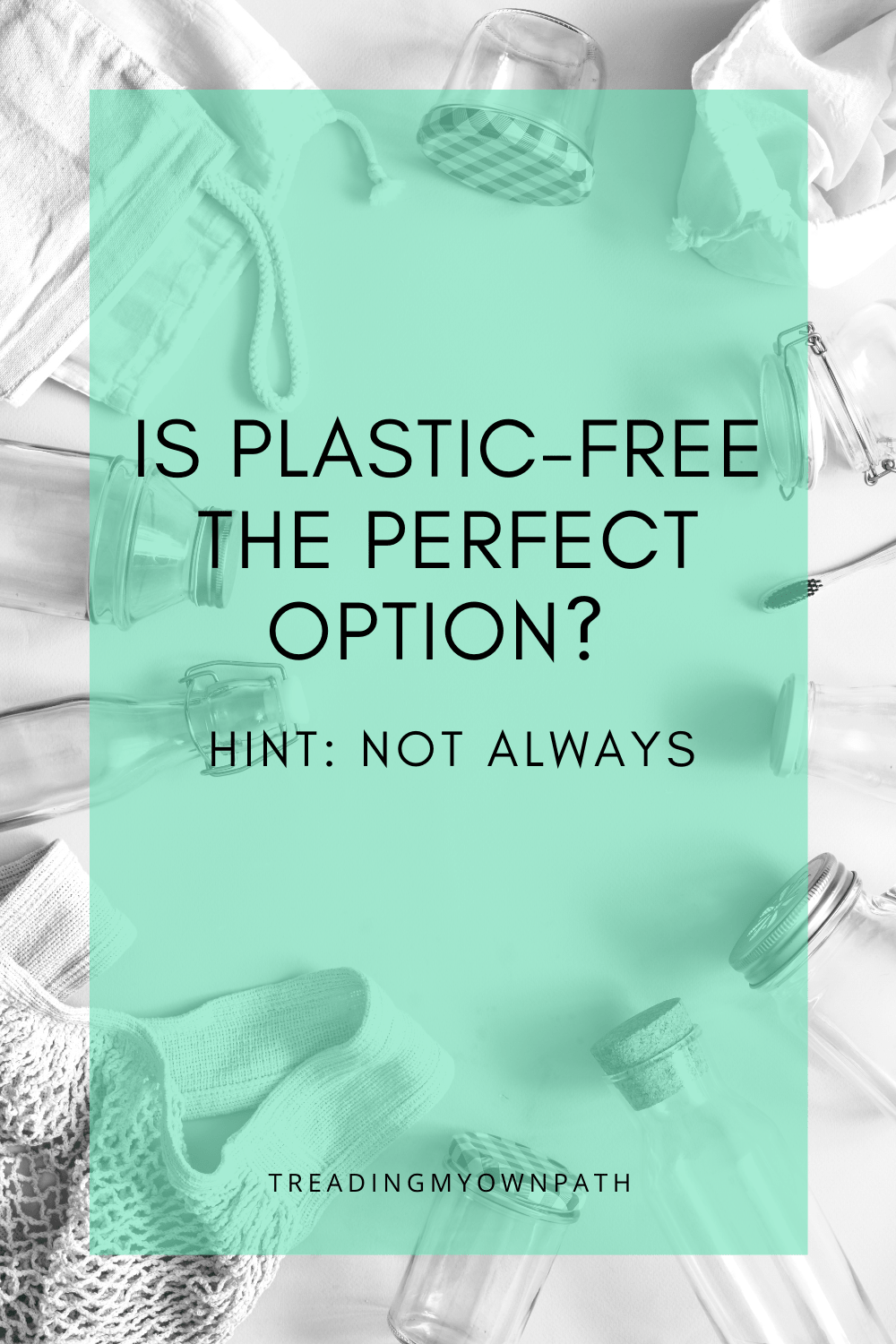
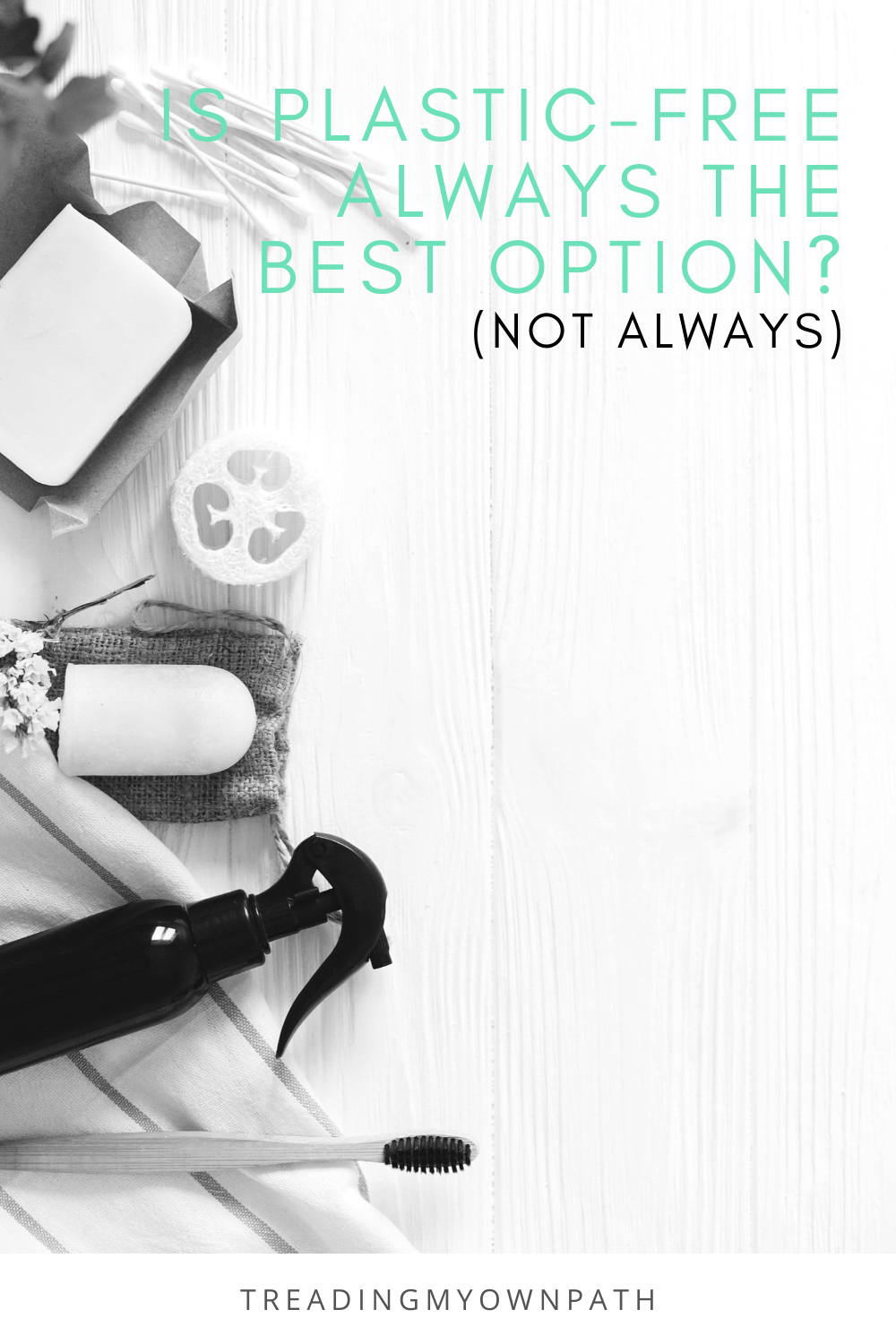
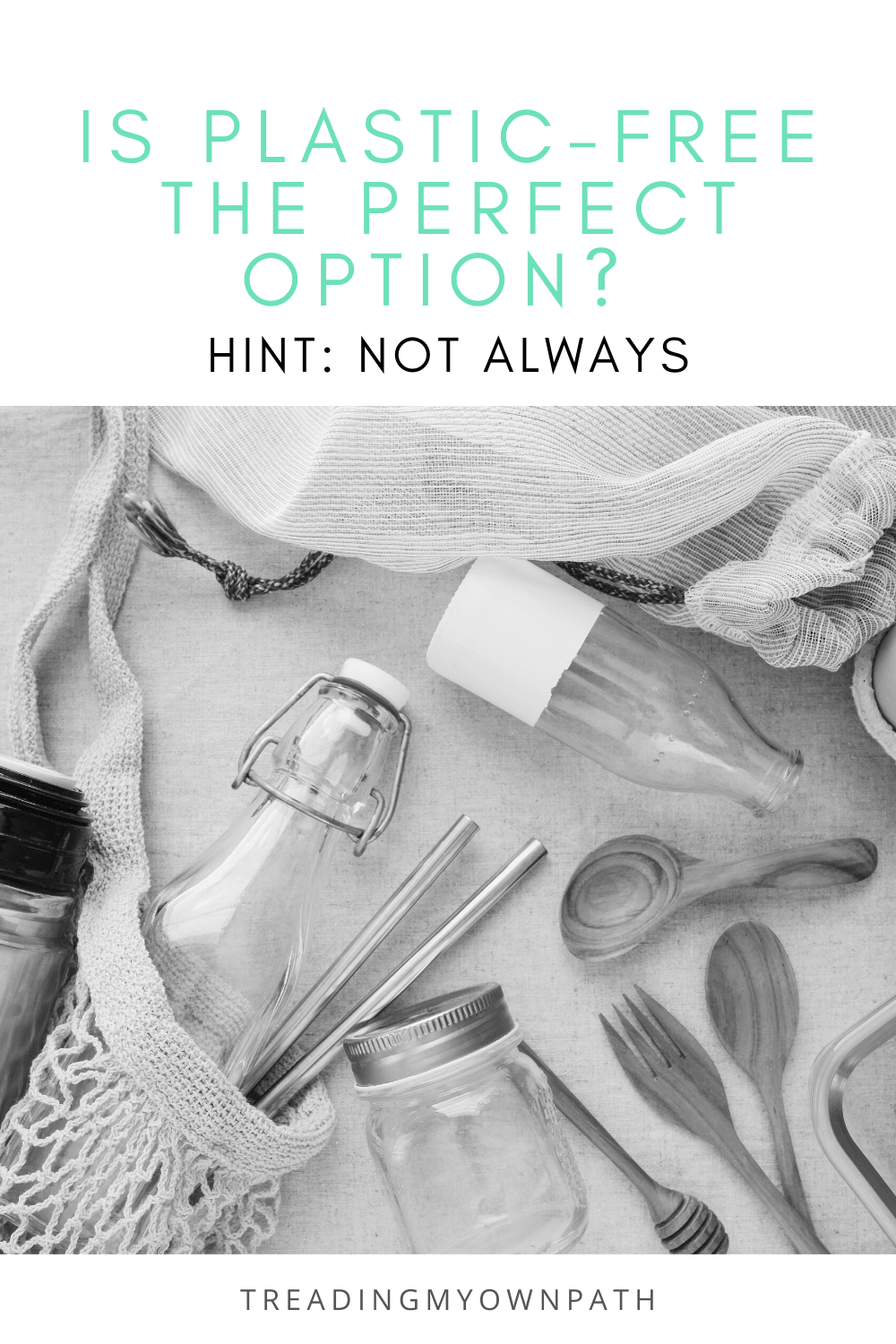
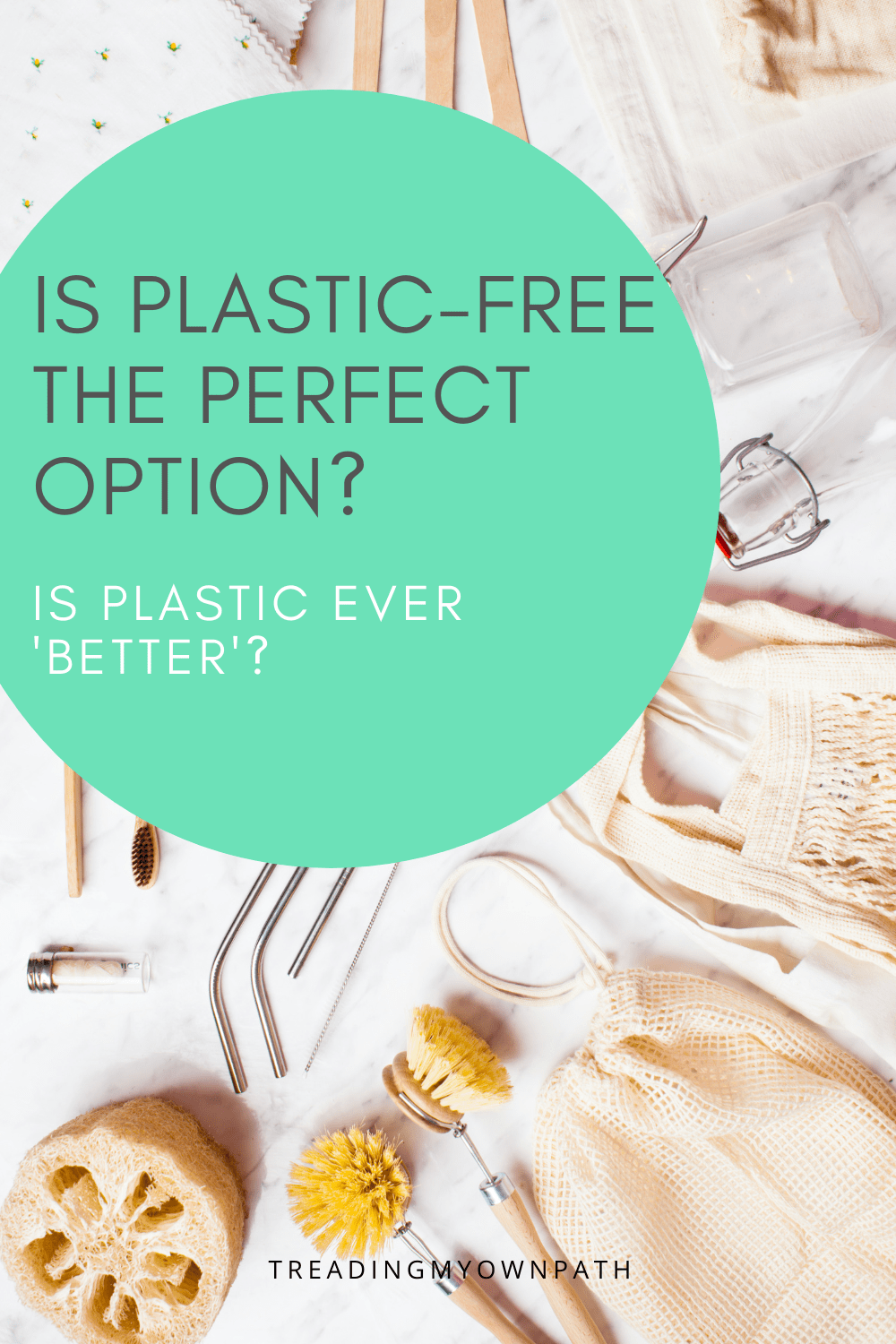
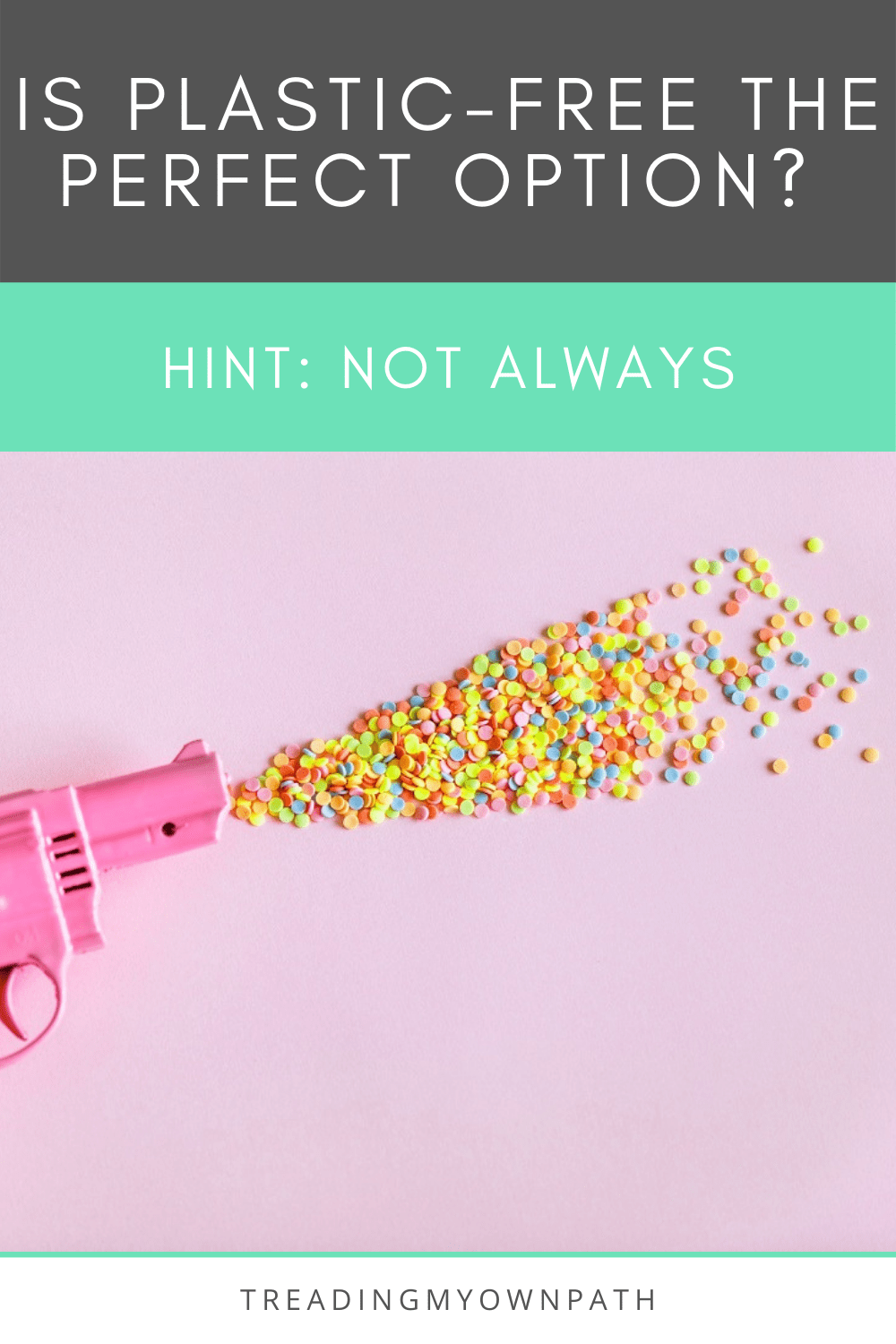
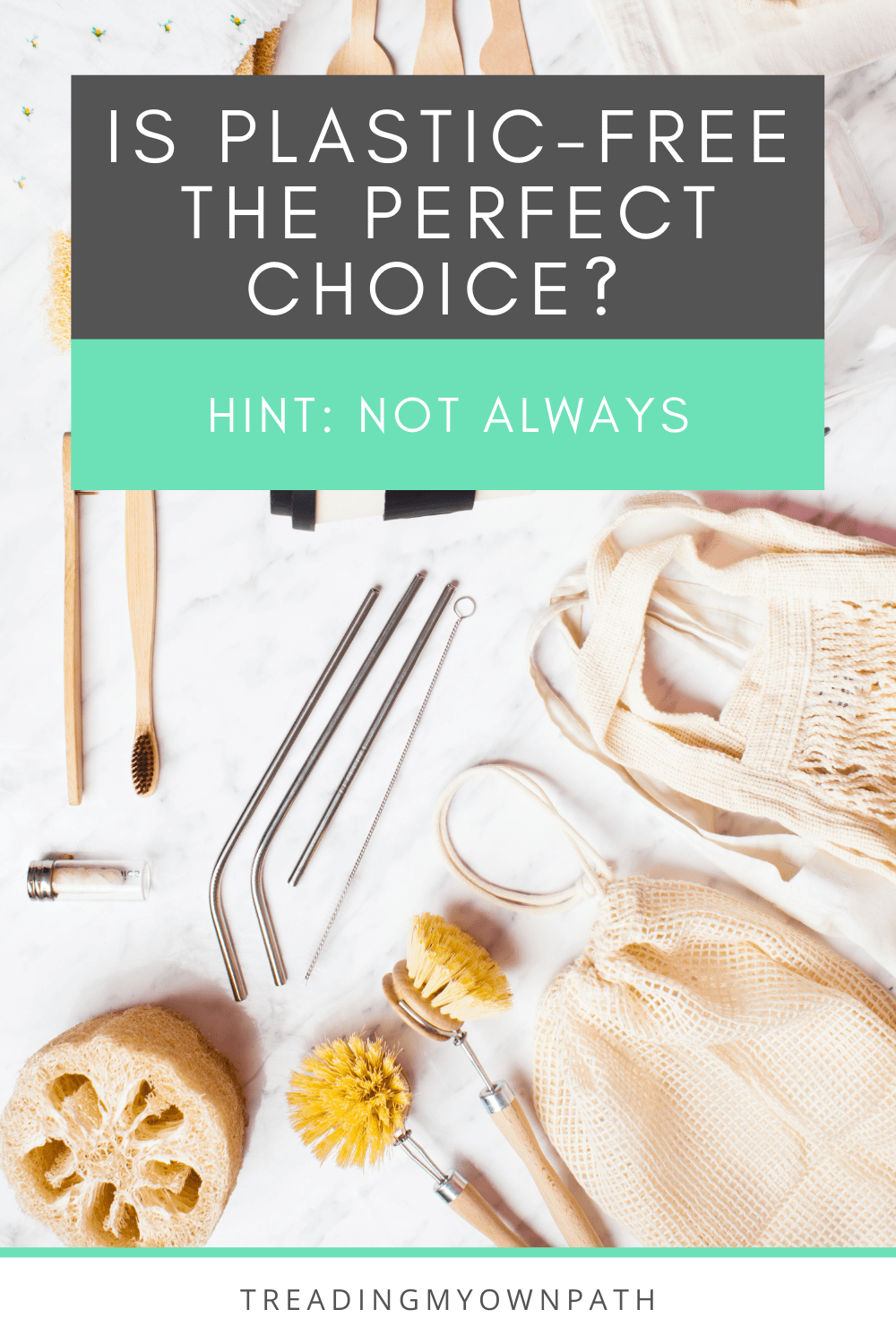
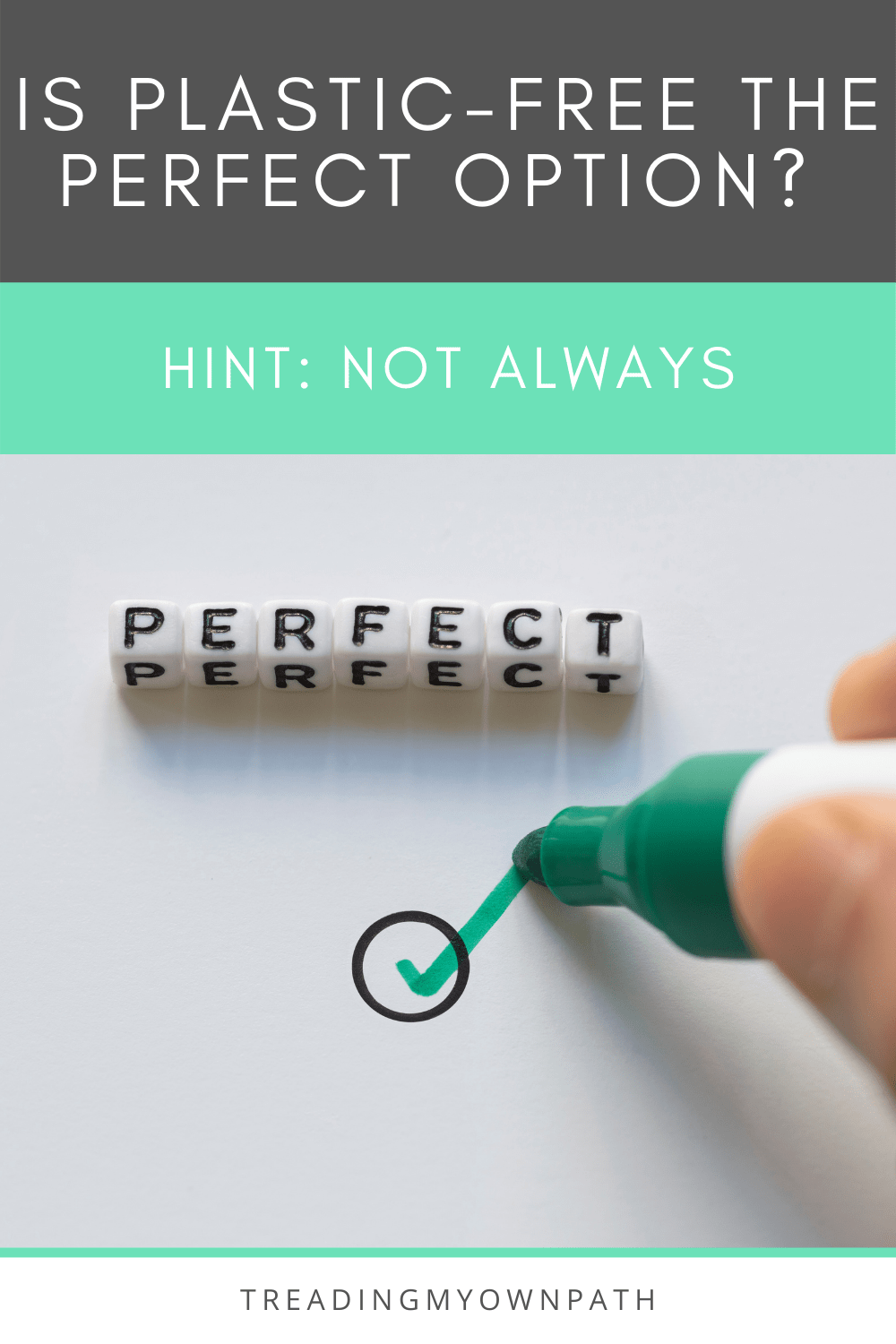

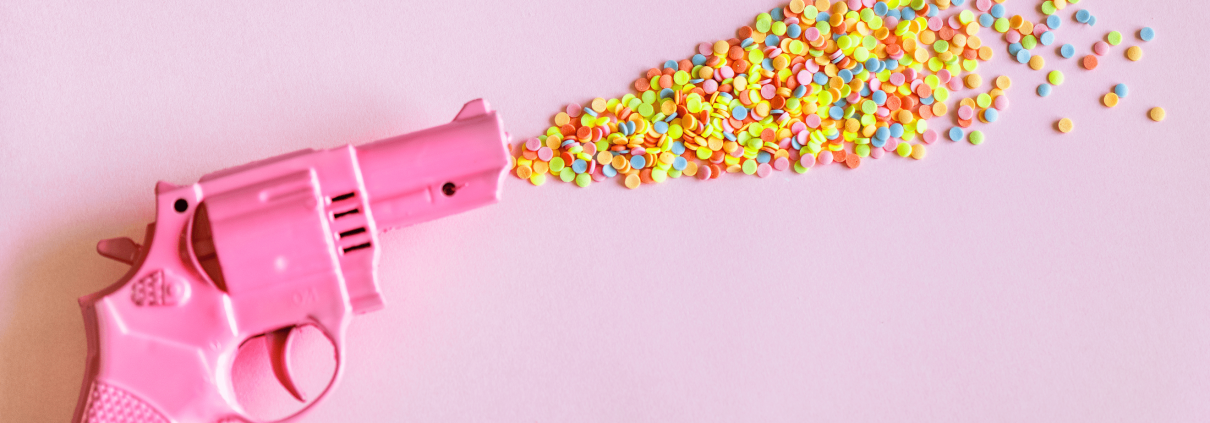


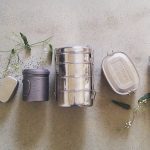

thank you, so inspiring! any thoughts regarding how to source tofu?
I’ve seen people make it from bulk soy beans :D
At the moment sometimes I can find it in a glass jar. I have also heard of people buying from Asian supermarkets and restaurants that make it themselves:)
Thank you for the question on tofu! I asked this question on the Plastic Free July FB page without response. Where have you found it in a glass jar? Is it organic/biodynamic and local? I don’t have the time to make it for myself right now, and I’m not super keen on buying it at Asian supermarkets as I’m not totally confident of the source of the soy. So this has been a real conundrum for me during July. At the moment, I’m abstaining for the month of July but as a vegetarian it is something I do like to have in my diet for that quick go to protein fix when I’m not as organised as I could be. Any recommendations gratefully accepted!
I can’t help with the tofu in glass Jody, but you could consider making it. I never have, but I don’t think it is too hard – at the very least try it once and see!
I can completely sympathise as a fellow herbivore! The brand I use is called Biona Organic Tofu :)
Yep, agree about being able to find it in Asian supermarkets!
Hi Penny, not sure where you are but lots of Asian grocers around here sell loose so you can just bring your own container :)
I’m aware of compromises in my life. I don’t claim to be plastic-free but I AM consciously reducing my use. And I’ve had the ‘hypocrite’ comment. It occurs to me that often the people making that kind of remark want to make those of us, who are trying to do something, wrong so that that don’t have to make a change.
Edmund Burke: “There is no greater fool than he who did nothing because he could only do a little.”
On one hand Caro, I think a lot of people are just trying to be really helpful, and so you share something and they say “oh did you know or consider x”? And you didn’t and you feel bad. And sometimes these comments can be helpful and tell us new things (did you know that brand uses palm oil?) and sometimes they are just plain unhelpful (oh you shouldn’t buy from China). So whilst I think they come from a place of caring, they can misfire a little.
On the other hand, yes, some people do use these things to justify their own inaction. I like to think that this is the minority!
Maybe I’m being too cynical… I hope so!
Microfibres cloths! I bought them thinking they were great, in hindsight a cut up old cotton towel would have been a much better choice but I was none the wiser at the time! Just will have to use them until they fall apart now
Ha, yes agreed Sarah! I have a microfibre cloth, I purchased it in 2012 and it is still going now. I’m not sure how much they shed compare to fleece (which is known to be the worst) but next time, I’m with you – chopping up old towels is good enough for me!
Hi Lindsey, thank you, thank you, thank you for being a pioneer and eloquent voice in this mad world. I went to one of your library talks in Perth (Spearwood) and was totally inspired. Yes, I feel imperfect, but happy in my endeavours, trying for plastic free is madenly difficult at times. One of my favourite swaps is using a cheap thin cotton face cloth instead of a plastic sponge in the kitchen (they last a long, long time and easily washed). I can’t wait until manufacturers/suppliers shift to a new biodegradable product for packaging … have you heard anything on the grapevine as far as packaging innovations? Markets and bulk suppliers are so much more fun to shop at … I bless Fremantle every day! XAlana
Hi Alana, ah thank you so much for coming to Spearwood and so glad you were inspired! Hurrah, that was the goal! ;) I don’t know a lot about packaging, I don’t love it regardless of whether it is natural or biodegradable! – but I’ve seen fruit punnets made of cardboard, and boxes of tomatoes in cardboard (I posted that on instagram the other day). These things exist the question is how to get the stores to adopt on a mass scale…
Yes, Fremantle is such a good spot for bulk things :)
I totally agree! I have a plastic Keep Cup which I use most days and I’ve had for maybe 4 years, yes it’s clearly made from plastic but it’s eliminated the use of hundreds of single use cups. There are ethical considerations to make with everything, items and methods that solve one thing may not be great for issues, but if everyone gave at least a little bit of thought to how their purchases were made, where they came from and what will happen to them after use we’d be doing a lot better than now!
Ah yes Pete, agreed! That is a really good point too because I notice now with zero waste, there are always new and better things being “invented” and it is easy to want to replace the “zero waste” thing with something even more zero waste – which is hardly the least wasteful thing to do! Of course most people understand the ethos, but that isn’t to say there’s temptation… ;) One thing used properly and looked after is best, in my view.
Trying to go plastic free is almost impossible as I regretfully have to say that I was once the Queen of Tupperware so I have a cupboard full of it. That was before I realised the impact that plastic was having on our environment. This year I have started a campaign in our household to “reduce” the use of the single use plastics, with some resistance I must say. However our use of cling film, resealable zip lock bags and freezer bags has been almost totally stopped- those that we do still have are washed, dried and reused.
Eliminating plastic bin liners are my special project for July, and again there is lots of resistance! With regard to the use of microfibre cloths for washing dishes I too thought it was a good option, but am now swapping these to our old natural fibre tea towels that I cut up and zig zag the edges.
This really is about changing the whole way we do things around the home (especially in the kitchen) and the way we shop. Little by little I have introduced changes and we now always remember to take our shopping bags with us, use the produce bags I made out of repurposed fabrics, wrap foods in wax wraps (which I am now making myself) and carry our own drink bottles and coffee cups. Little wins that all add up.
Thanks for your inspirational blog Lindsay.
Thanks Brigitte Queen of Tupperware! That made me laugh. But also I can feel you kinda cringing too. Ah, all these decisions we make based on what we think is best and then realise – oh hang on ! Not sure you’ve read the post, but I have some embarrassing confessions – and at one stage in my life I purchased a coffee pod machine. I also used to ask for an EXTRA plastic straw. We learn! And heck, I’m making up for it now!!!
The more people in the household the harder it will be, but then suddenly one day they will do something and you’ll go – wow, they really have changed! And you’ll be super proud and it will all be worthwhile. I don’t know when it will come but it will happen!
Thanks for this post! I am vegan, and the vegan community can be equally as hard on you if you’re not perfect, and I find it very discouraging. Every little action makes a difference and should be celebrated. I am on the very beginning of my low-waste journey, and I’m taking it one step at a time – first by making my own bread (I consider this a double win since I borrowed my mom’s old bread machine – not necessary by any means, but I rescued it from a landfill, at least!), then by making my own milk, then by switching to shampoo bars. There are still plenty of things I buy in recyclable containers, but in 5 years I bet I will have eliminated most of it. Thanks again for being a positive voice out there! Sincerely, a fan from the States.
Love your blogs. I agree about going plastic. My biggest problem is getting rid of plastic bags that a lot of produce comes in. We have bulk stores in Frankston Vic and Mornington where I sometimes shop but all the produce is organic which makes it often beyond my pocket on a pension. I never throw plastic in the bin but reuse everyone until the end of their life and then put it Coles red bin. If we all did our bit it would make a big difference.
Any thoughts on an alternative to plastic bags in the freezer, I freeze meat, home baked sourdough, bulk grains etc. glass & reusable plastic containers are far too bulky.
Hi Jane, I reuse the plastic packaging from other food products that I buy, such as frozen peas or sushi sheets, and put my cut up chicken in them.
Exactly! Great post!
I work at a busy hospital where throw away cups and plates are used on a massive scale. I have my glass coffee cup and my own plastic picnic plate which I keep at work and hopefully lead by example. I have found that pointing out throw away items doesnt go down to well, people have got to want to help our planet. Thanks for all the inspiration!
I have a disability and love plastic! Plastic containers for leftovers, reusable plastic bottles etc. It’s light, doesn’t break when dropped and can wash and reuse all the time. I just have to teach my dog not to bite hard on them as he picks them up for me as been putting holes in some lately… hope
Hi Lindsay! I just want to say thank you for your blog – or really, for your kind and helpful attitude, knowledge and guidance to so many, as evidenced IN the blog. Keep on keeping on..and helping us to “make one better choices” at a time. And – I hope you know about World Cleanup Day, September 15th. I know there are “Aussies” on board. WorldCleanupDay.org
Great points! I have always reminded myself that in all likelihood many of the items I buy in the bulk section first arrived in big plastic bags. BUT, that is so much better than 40 small plastic bags. Also, many of the larger plastic bags are now finding sources to be recycled, where the small individual packages designed to be a marketing piece are not. It’s all about making a difference.
Hi Lindsay
I was excited by the local shopping centre near us opened a package free store/bulk store. Luckily at the very front it sign said not for coeliacs! I never thought about the airborne stuff in there due to limited packaging. My daughter is coeliac, so we are trying hard to reduce, but some things are impossible as any contamination and she ends up in hospital again.
Thank you also for your other tips I love them. I love your minimalist house, it gives me inspiration and helps with the cleaning!
Cheers
Mel
Hi Lindsay,
First of all, thank you for such an informative blog and for your availability on sharing information.
I am totally new to the plastic-free world and came across your blog in one of my google searches on plastic recycling.
On the whole topic, the question I haven’t managed to answer is the core one: “Is plastic-free really the solution?”. During my searches, I came across several explanations on how plastic usage reduces food waste (and how this food has a higher water and land consumption and higher carbon footprint than this plastic), on how plastic has lower carbon footprint than glass and aluminium due to transport facilitation and on how both aluminium, paper and glass just have currently a better environmental image due to the current structure in their end-of-life solution (reuse, recycle, etc).
As my goal is to look at the best environmental choice as a whole (and not on the ocean pollution exclusively, for example), when considering not only accumulating on landfills (as for me this is a question of better end-of life structure) but also the usage of natural resources (including the soap contamination of the water used to wash a reusable container) I am still not sure that plastic-free is the best solution.
I am not at all questioning you position, as I still do believe that the whole posture from society around consumption needs to change, but I wonder if you found answers for those questions already. How do you handle food waste, usage of water, energy and soap for washing, cost of transport of the food you buy? In my case, living in Germany, sourcing everything locally is not an option as we have no production of fruits, for example, during 6-8 months; no availability of nuts, etc.
Looking forward to hear from you!
Kind regards,
Renata
a part of me wishes that they would offer soap and water hand washing. not the antibodic stuff throughout the stores
Climate change is real and the time to act is now. You can make a difference by being conscious of what you buy, and we provide you with better choices to make the process of revival easier. To make any country Eco friendly, it has to start with reducing the use of Plastic Products. Plastic is the main threat to the environment. To reduce the plastic use we have to adopt to Plastic Free Products like Eco friendly Products which are biodegradable and renewable. Revive is offering Eco Friendly Products in India. Revive’s eco friendly products are natural, sustainable, ethical sourced and come with plastic-free packaging. Choose natural, be sustainable, and be a part of the revival. Here are some of the top picks that will help you get started on your zero waste journey. Visit https://www.letusrevive.com/